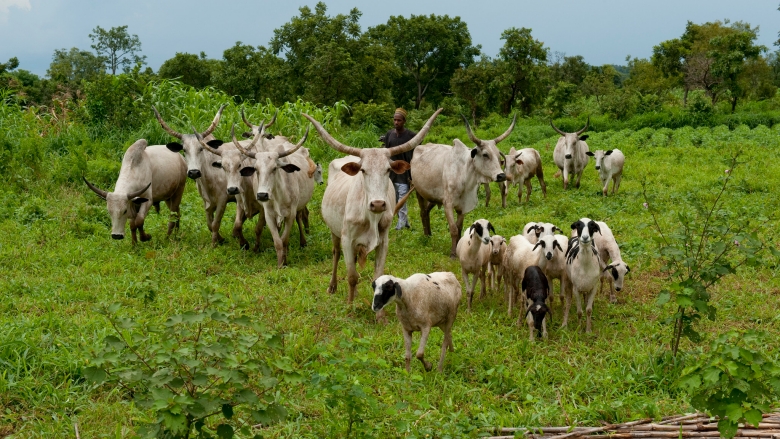Co-hosted by the World Bank's Fragility, Conflict and Violence (FCV) Cross-Cutting Solution Area and the Agriculture Global Practice (Livestock Community of Practice)
Co-Chairs:
Ethel Sennhauser
Director, Agriculture Global Practice, World Bank
Vijay Pillai
Adviser AFRVP, World Bank
Speakers:
Catalina Quintero
Operations Officer in FCV, World Bank
Edwin Barasa-mang’eni
Conflict Specialist, Inter-Governmental Authority on Development (IGAD)
Key Discussant:
Saroj Kumar Jha
Senior Director, FCV CCSA, World Bank
Overview:
Pastoralism, the extensive, mobile grazing of livestock on communal rangelands, is the key production system practiced in the arid and semi-arid districts of the Sahel and in the Horn of Africa (HoA). An estimated 50 million people rely on pastoralism for their livelihoods in sub-Saharan Africa and in the HoA, arid and semi-arid lands (ASALs) represent more than 60 percent of the total area.
Both the Sahel and the HoA where pastoralism is the dominant economy have recently experienced areas with mounting levels of instability and insecurity. The northern parts of the Sahel and the Sahara have seen rapid development of all kinds of trafficking, an increase in criminal activities from kidnapping to stealing of cattle and goods. Moreover, some of these areas have become a bastion for extremist groups, some of them engaged in terrorist activities. Currently there are still high levels of instability and spades of violence, including community-level along ethnic lines, in Mali, and bordering the Sahel, in Niger, Libya and Nigeria, as well as in the HoA region (long-lasting fragmentation of Somalia and the military intervention of its neighbors and the separation of South Sudan from Sudan and recent conflicts within South Sudan). In this context, increasing attention has also turned to the connections between pastoralism, and the factors that drive or mitigate conflict and instability in both regions. While the assumption is that pastoralism could be an important stabilizing factor, under what conditions and how the development of pastoralist economies and livelihoods contributes to regional stability is not yet well understood.
The Pastoralism and Stability in the Sahel and HoA project (PASSHA) is an initiative funded by the State and Peace-Building Fund (SPF) that supports the two IDA regional projects on pastoralism in Africa: the Regional Sahel Pastoralism Support Project (PRAPS and the Regional Pastoral Livelihoods Resilience Project for the HoA (RPLRP) in understanding and leveraging project impacts on stabilization and conflict-prevention. It promotes broader knowledge-building and exchange on the issue of pastoralism and stability in the Sahel and HoA regions, in collaboration with interested partners, such as the Agence Française de Développement (AFD), the Club de Sahel, the Food and Agriculture Organization of the United Nations (FAO) and others. The presentation will review the rationale for such a joint AG GP-FCV initiative and progress made by the project in developing institutional tools aiming at ensuring conflict-sensitivity in pastoral development initiatives undertaken by regional institutions, countries and donors.
